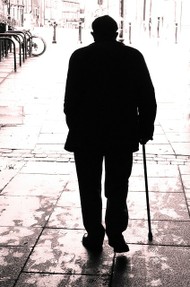 All living things have feelings and emotions. If they have a nervous system, a spinal cord and a brain, then they can feel pain.
All living things have feelings and emotions. If they have a nervous system, a spinal cord and a brain, then they can feel pain.
Have you ever stopped to think about what impact your judgement on someone else has done to them, personally?
Many of us haven't. Why should we? We're likely never to see them again. But, your judgement will stay with them for the rest of their life. This is okay if:
- They have the right kind of temperament to deal with it.
- Your judgement was only one amongst a few.
Let's take the first point: They have the right temperament to 'cope' with poor judgements.
What is the right temperament? There is no easy answer to this. But, if that person is able to continually bounce back and get on with their lives without lasting damage, then you have gotten away with it. However, many of us don't have that kind of mentality, me included. We are unable to shake off this view that we are disliked, are worthless and, in turn, we can start to believe what others say about us. We may think we are different or even know, but that view can change. If you are continually told you are wrong or moody, eventually you'll start to believe that.
The consequence of this is a shattered self-esteem, low self-confidence and gradually a fear of others. Does this seem extreme? Maybe, maybe not. We are all different, we perceive a situation different to what others do. Therefore, a reaction to a situation shouldn't be immediately considered 'wrong', just because it doesn't fit in with the 'norm' or the typical.







 All living things have feelings and emotions. If they have a nervous system, a spinal cord and a brain, then they can feel pain.
All living things have feelings and emotions. If they have a nervous system, a spinal cord and a brain, then they can feel pain.





 If, when, why you have made a judgement on someone else, ask yourself these questions and consider these facts:
If, when, why you have made a judgement on someone else, ask yourself these questions and consider these facts:

 Understanding Depressionon 12/05/2024
Understanding Depressionon 12/05/2024
 The Mystery Predators of Britainon 12/05/2024
The Mystery Predators of Britainon 12/05/2024
 Support Your Local Pet Rescue Charityon 12/05/2024
Support Your Local Pet Rescue Charityon 12/05/2024
 Could Equine Assisted Therapy Benefit Those With Personality Disorderson 12/05/2024
Could Equine Assisted Therapy Benefit Those With Personality Disorderson 12/05/2024



Comments
Some online sources correlate mature decision-making with arising opportunity even as others equate it with a careful process.
For example, one parental set expects their child to make decisions as early in childhood, basically from talking stage onward, as possible. Decision-making grows by knowing what it's like to be a decision-maker, not by training to be a good decision-maker.
Another parental set interprets decision-making as manifesting in later childhood, from the age of awareness about knowing how to analyze alternatives and consequences.
Might the latter not be applied to judgment-making?
I love this part: "I have been judged because I don't react as others think I should do. All I knew was that I did and do feel emotions. I may on the outside seem cold and indifferent but deep down, I consider myself kind and considerate. I hurt just like you."
Here is a poem I wrote describing this, years ago before my diagnosis of BPD:
http://makebpdstigmafree.wordpress.co...
Being quick to judge people is generally bad. It takes time to understand people, and mostly we don't have the right to judge them at all. Of course, there are things it's good to know about people (like a disability, or an exceptional talent, or a strong like or dislike of certain things) and use this information in figuring out how best to relate to them.
Good advice. It's too easy to arrive at the wrong conclusion because we don't know the full story. Even when you have all the facts (rare), why be judgemental anyway?